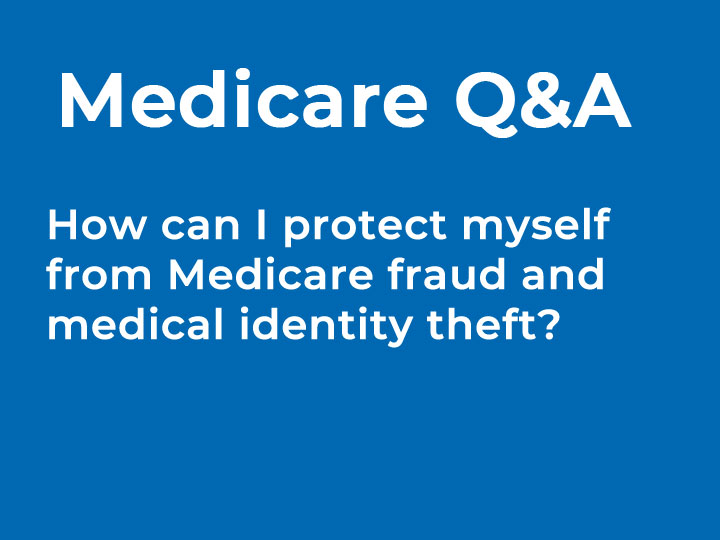Healthcare identity theft occurs when an individual takes or utilizes your confidential information (such as your full name, Social Security Number, or Medicare Identification) to illicitly submit false billings to Medicare and other health insurers without your consent.
When you receive medical services, make a note of the service dates on a calendar and hold onto any receipts and statements provided by healthcare professionals to spot any discrepancies. If you notice what seems to be a discrepancy or if a healthcare provider charges you for treatments you did not receive, follow these steps to investigate the charged services:
• Examine your “Medicare Summary Notice” (MSN) if you are covered by Original Medicare to determine if the service was charged to Medicare. If you’re enrolled in a Medicare Advantage plan, review the explanations of benefits you receive from your plan.
• Sign in to (or establish) your protected Medicare account on Medicare.gov to access your Medicare claims if you are under Original Medicare. Your claim information is typically available online within a day after the claim has been processed. Medicare’s Blue Button feature also allows you to download your claim data. Additionally, you may dial 1-800-MEDICARE for assistance.
• Contact the medical provider or supplier directly if you recognize them, and request a detailed statement of services. They are required to provide this to you within 30 days.
If you’ve already reached out to the provider and you have suspicions that Medicare is being billed for a service or item that you did not receive, or if the provider listed on the claim is unfamiliar to you, contact 1-800-MEDICARE.


